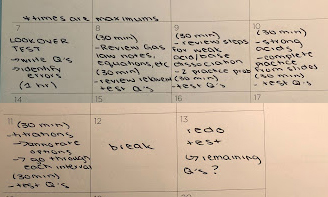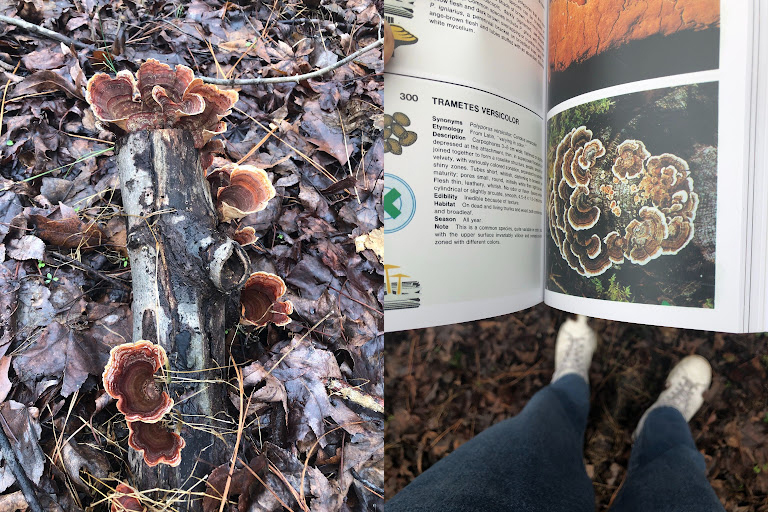Bouncing Back from a Bad Grade
By Sig, a Peer Tutor
In my classes, I always want to be perfect. It is not a profound or unique sentiment, but I enjoy success. After attending class, completing all the assignments, and putting in hours of extra work to prepare for a test, I hope that it pays off and I can get rewarded with a good grade. Even if I know I haven’t prepared to my fullest, I at least hope to get lucky. So, when I got a Sakai notification that my CHEM 102 acid/base test had been graded, and I saw a rather unfortunate grade, I panicked. I questioned my validity of being a student at UNC. I compared myself to my peers and wondered why I was inferior. Mostly, I was overwhelmed that the course continued to introduce new material when I had yet to master the previous unit. Realizing that brooding over these thoughts wasn’t helping me improve, I decided to work on changing my mindset and to use that bad grade as a turning point towards progress.
Reviewing the Test
The first step I took towards improving my grade was to look back over the test. I identified the errors I made on the test and asked myself critical questions: Why did I get this question incorrect? Did I make a simple error? Did I misunderstand this topic, did I run out of time, did I feel confident while completing this problem on the test? After my test had been returned, the last thing I wanted to do was look at all the mistakes I had made. Yet, tackling these tough concepts as soon as possible would actually help me to better evaluate my understanding and adjust accordingly.
Based on this realization, I decided that I would dedicate a limited amount of time each day, roughly an hour, to work on understanding the concepts that had challenged me. It was easier to motivate myself when all I had to commit to was studying for a set amount of time each day, rather than getting overwhelmed by the enormity of all of the difficult concepts I had to master before my exam.

Analyzing Study Habits
In addition to assessing my understanding of content, after my last test, I also had to reassess my preparation habits. I recognized that I focused too much on specific practice problems and would look at the answer key whenever I felt a problem was difficult. Tests do not contain the exact problems on the practice test or provide the answers for a student to work backwards. I changed this issue by recognizing the possible variants in acid base chemistry, (weak acid/base dissociation, strong acid/base dissociation, a weak reacting with a strong, and a strong reacting with a strong). After I was able to recognize the different variants, I studied the steps necessary to approach these problems and what units to use by looking over slides and the textbooks. Finally, I was able to solve any titration problem because I knew how to solve every type of acid/base problem. The Learning Center’s worksheet on Studying Smarter really helped me to find good study techniques!
Self Care
Once I had analyzed my mistakes and brainstormed better learning techniques, rather than berating myself or lingering in the past, I shifted my focus to think about moving forward. In order to do so, I had to remind myself that it was okay that I had received a bad grade and that I couldn’t be perfect at all times, since I was here to learn.
Of course, this was easier said than done. My first year of college, if I received a bad grade, I would get stuck in this endless loop of waking up early and staying in the library until late at night. After this test, however, I decided to be intentional about identifying opportunities to rest and find moments of joy. I went on nature walks, cooked, and spent time with my friends. When I struggled to find time for these activities, I decided to make time by scheduling them into my planner! Because I was well-rested, my performance during my dedicated study times actually improved.

From this experience, I learned that a bad grade didn’t make me a bad student. By incorporating these techniques, I ended up being successful in CHEM 102 and now help people learn acid/base chemistry all the time in tutoring. Now, rather than rooting my definition of success in comfort, I remind myself that moments of discomfort are where I have truly learned the most.
This blog showcases the perspectives of UNC Chapel Hill community members learning and writing online. If you want to talk to a Writing and Learning Center coach about implementing strategies described in the blog, make an appointment with a writing coach, a peer tutor, or an academic coach today. Have an idea for a blog post about how you are learning and writing remotely? Contact us here.

